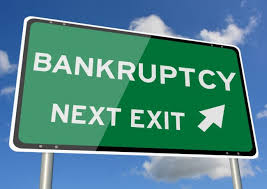Chesapeake Energy
Chesapeake Energy has always been a company willing to take risks to grow its business, but that’s likely to backfire. The company has $8.9 billion of debt and even before COVID-19 and the resulting drop in oil prices wasn’t able to squeeze out much of a profit.
Cash on hand was a meager $82 million as of March 31, 2020, so there isn’t a big financial backstop on the balance sheet either. To shore up the balance sheet and pay off $253 million of debt coming due this year, management had planned to sell $300 million to $500 million of non-core assets, which will likely be difficult in the current energy environment.
Oil prices have recovered slightly over the past month but for Chesapeake Energy, the drop in natural gas prices could be offset any oil gains. The company is still a big producer of natural gas and that market has collapsed as well. Chesapeake Energy may have enough hedges and assets to survive for a few more months, but if the weak energy market continues much longer it won’t survive the year.

Occidental Petroleum
Acquiring Anadarko Petroleum in 2019 might have been seen as a smart move at the time, but for Occidental Petroleum, it’s the move that could lead to its demise. It paid $55 billion for the oil and gas company and added nearly $30 billion of debt to get the deal done. When operations were pumping out billions of dollars in cash, that may have seemed like a manageable debt load, but it’s not today.
Transocean
The offshore drilling market was booming when oil was near $100 a barrel, and that was driven primarily by lucrative long-term contracts for ultra-deepwater rigs. And Transocean invested in buying those rigs in droves. But now the economics have changed.
In April, Egypt’s Burullus Gas Company terminated its contract for the Discoverer India off the coast of Egypt, and that may be the beginning of the fallout. Oil and gas explorers haven’t yet gone out of business in large numbers, but if demand and prices remain low, they could. And deepwater offshore will be one of the first segments to suffer.
All of this is a bad backdrop for Transocean, which has $7.7 billion in net debt and has been losing money for years.
Click here to view Motley Fool article
Source: Motley Fool







